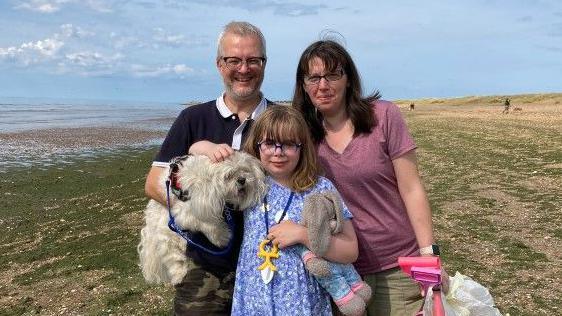Women's housing project receives BBC award
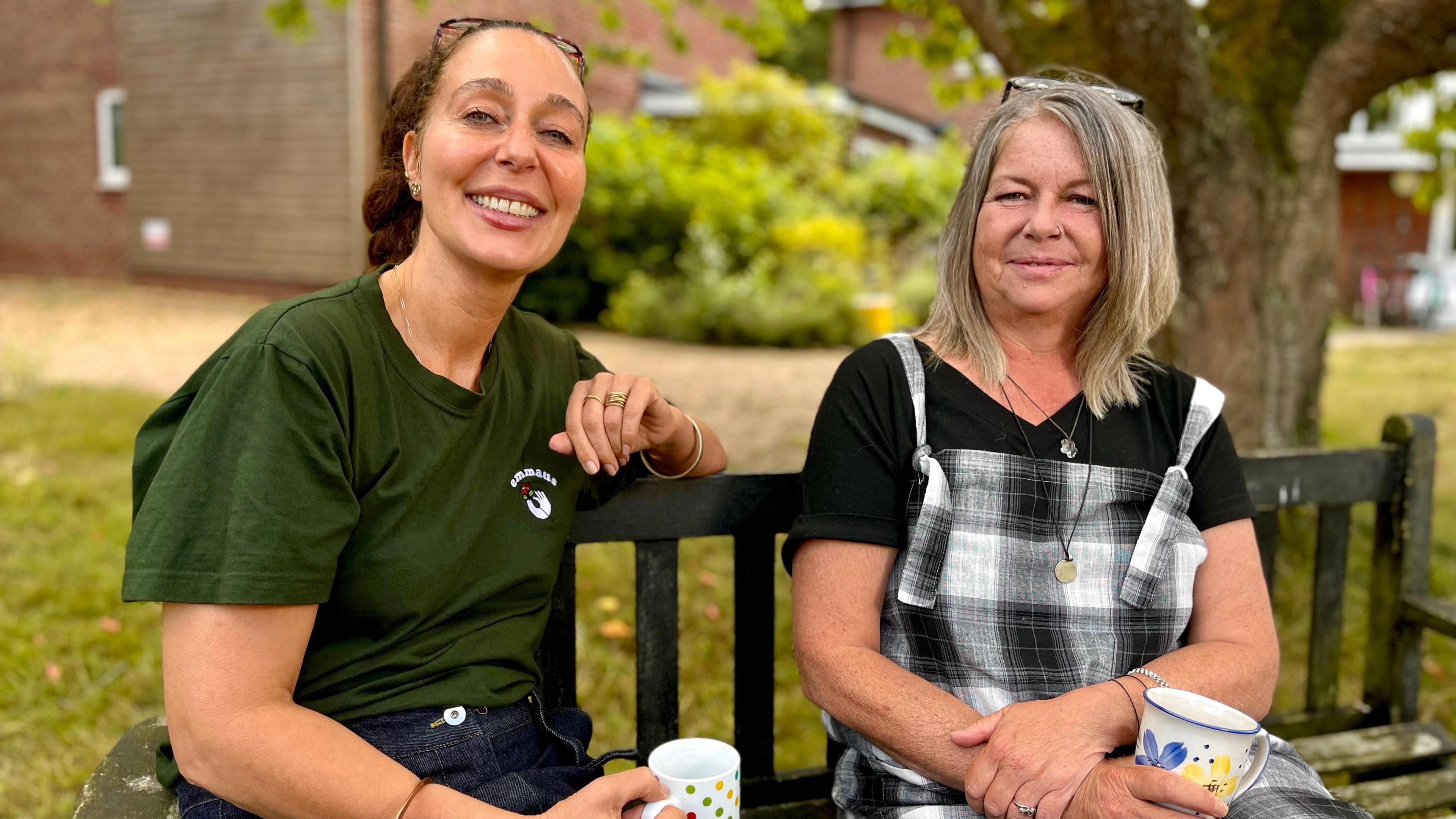
Cecile Roberts and Jo Andrews, from Emmaus Norfolk and Waveney, run the Women's Only project, which has been handed a BBC award
- Published
A pilot project helping women recover from life-changing events has been the recipient of a BBC Make a Difference award.
The Women's Only project, external, run by homeless charity Emmaus, gives nine women with a traumatic past the chance to rebuild their lives.
The women, aged between 23 and 60, are living together for a year in a house set in the grounds of All Hallows Convent in Ditchingham, Norfolk. All have had challenging lives that have often led to homelessness.
The charity said the project was about helping the women "make sense of the past so they can drop some of the guilt and shame".
It was given the Community Group Award at a ceremony hosted by BBC Radio Norfolk at Norwich Castle on Thursday, alongside other local winners.
It was nominated for the award by one of women who is being housed.
'Collapsed in tears'
The project is being run by the Norfolk and Waveney branch of the charity, with the nine-bedroom house opening in January.
The women are due to live together for a year, supported by Emmaus staff and experienced trauma counsellors.
Chief executive Cecile Roberts said it was "not a refuge", but was about giving the women the skills to get them back on their feet.
"When the first woman arrived on day one she'd been living in a rough hostel, with police on the scene nearly every day. When she saw her room here, she collapsed in tears," said Ms Roberts.
The group receives two days of counselling and they are taught life skills and self-defence.
At the end of the year they can leave, or take a place within the wider Emmaus residential community if they are not quite ready for the outside world.
"We're really mindful of the fact that we need to take responsibility for that bridge between here and the big bad world," said Ms Roberts.
"People will want to leave at the end of the year, but there's a fear of the unknown. We want them to leave here feeling good in their own skin, to feel empowered and lead authentic lives."
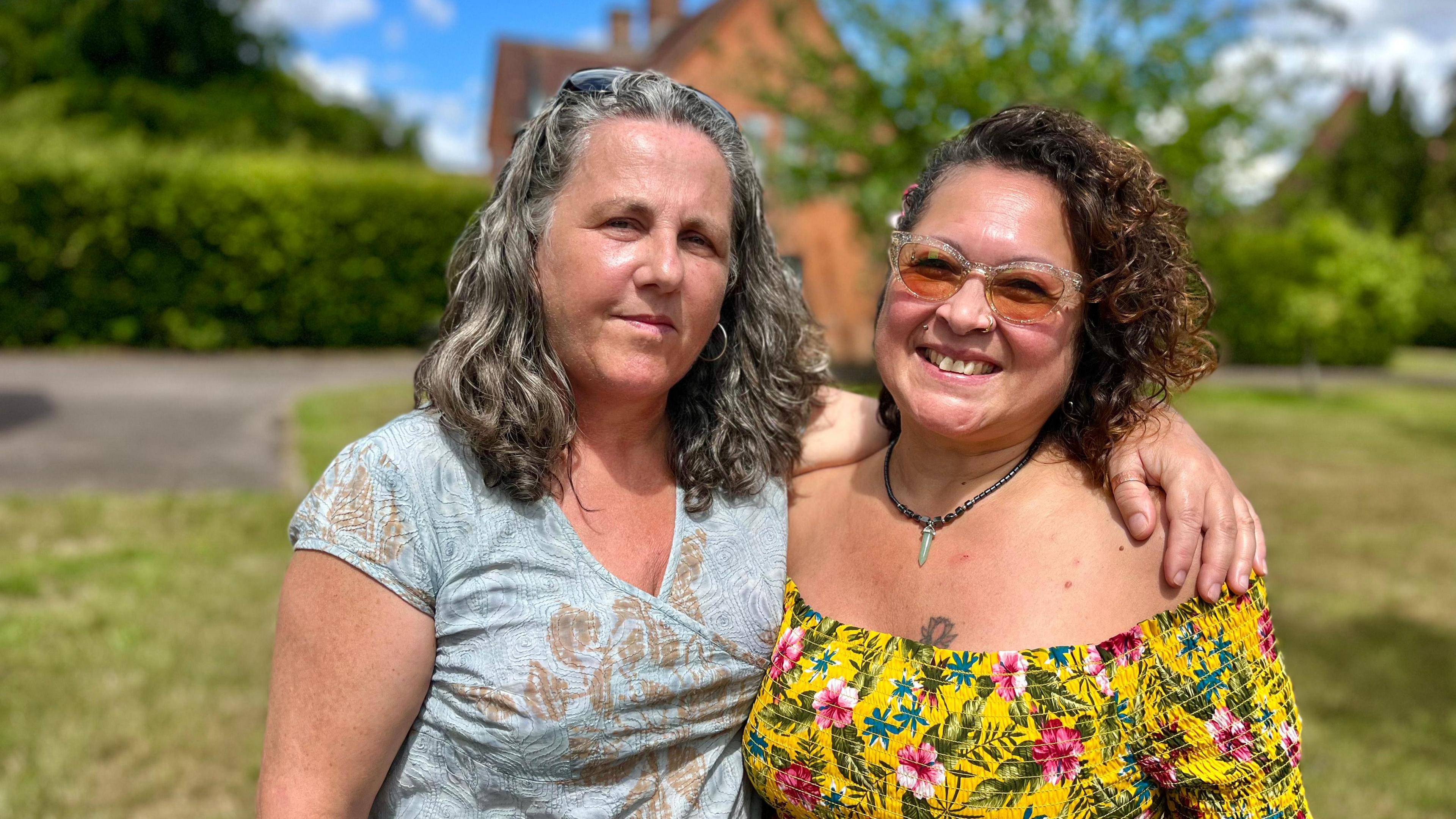
Louise and Michele have become great friends since moving in to the Women's Only house
The project was nominated for the award by Michele, who was homeless before she got a place at the house nine months ago.
"It's for people like me who fall through the cracks," she said.
"I have two dogs, and lots of hostels and housing associations don't allow pets.
"I ended up living in my car for a while with the dogs. It wasn't too bad. The mattress was good and I found nice places to park up.
"We're given therapy here and the tools to move on. When I leave here, I hope the life I have next will be more fulfilling and that I make better choices."
Michele has struck up a close friendship with Louise since moving in.
"It's been quite a challenge at times, all women living together, but it's absolutely magical here," said Louise.
"I have made friendships like this one with Michele, and whatever happens we will always have that. Everything happens for a reason."
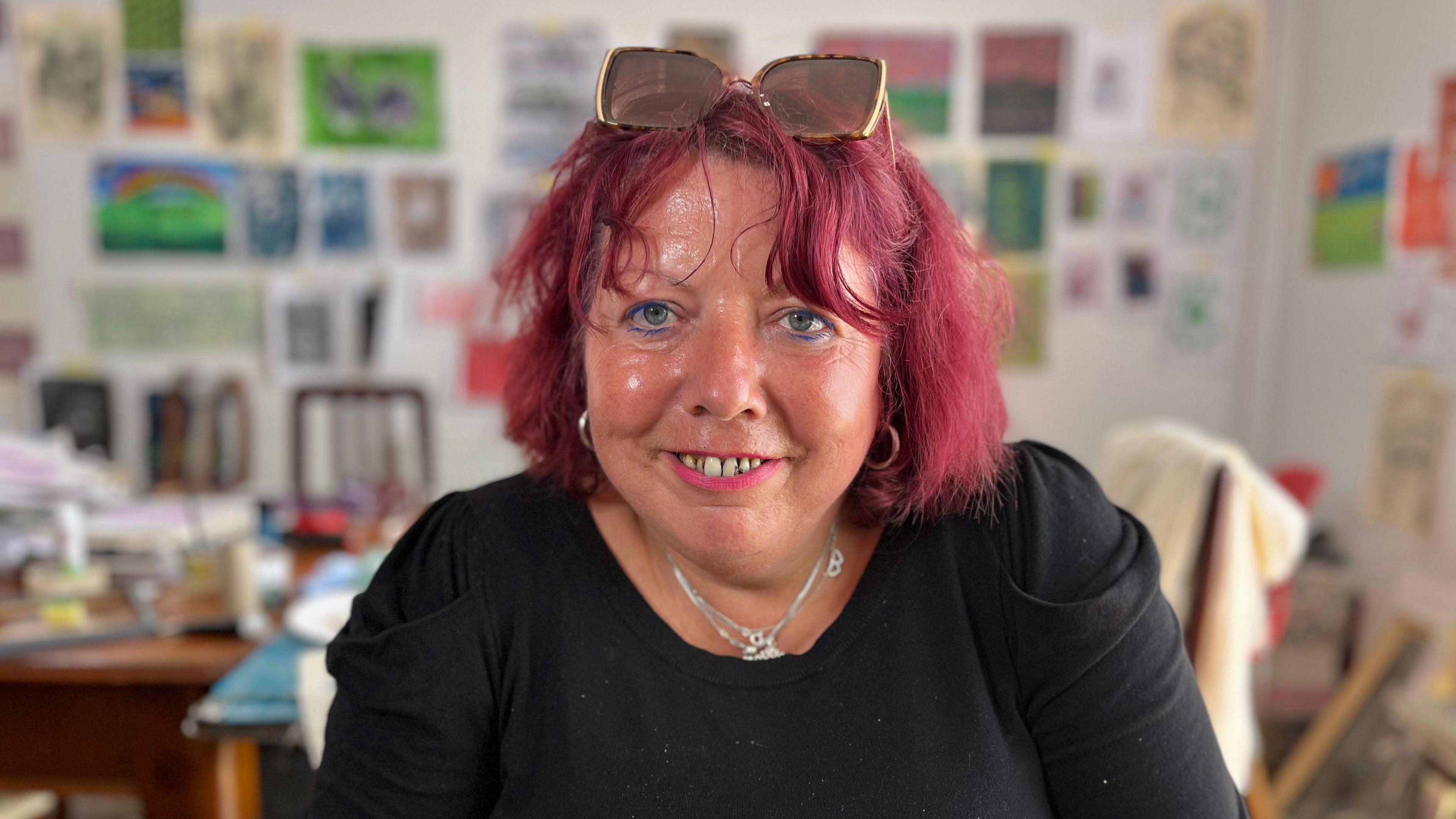
Mel has been in the house since March and said it had already changed her life
Another resident, Mel, moved in to the house in March.
She has been inspired by the project to apply next year to do an MA in Arts Therapy - and is hoping it may lead to working for the charity in future.
"I was at rock-bottom when I came here. This project is awesome. I've been lifted from the floor and empowered," she said.
"If I could end up working here one day that would be the icing on the cake."
As well as individual counselling, the group helps and supports each other.
The project's development manager, Jo Andrews, said the range of ages and experiences meant everyone brought something to the house.
"They are very good at grouping together. They do art together, they learn together and they cook together," she said.
"They're building close friendships that they will take with them when they leave."
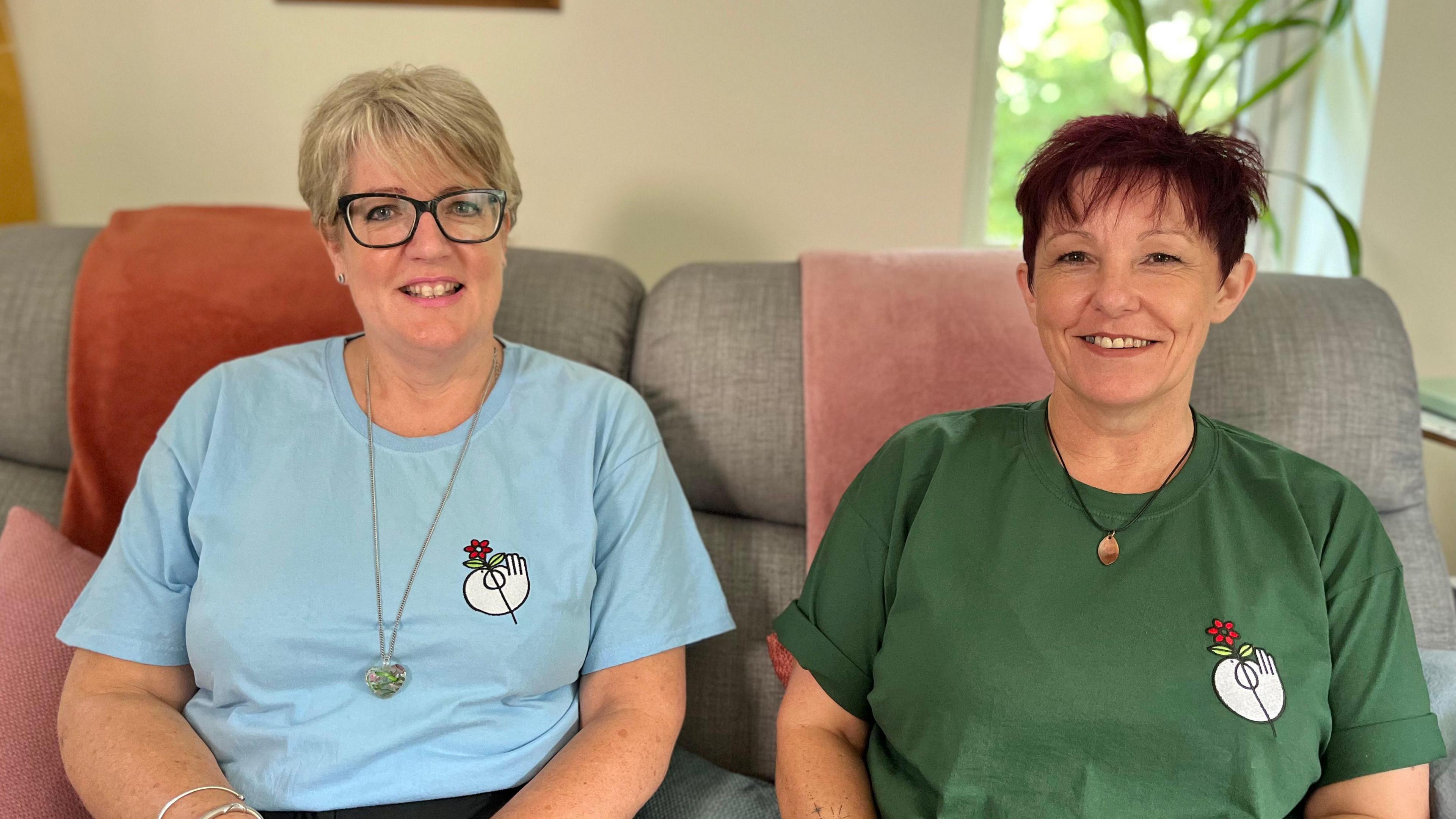
Well-being counsellors Emma Kerry and Lynn Ambrose work with the women at Emmaus two days a week
The women on the pilot have either self-referred or been channelled through agencies that deal with issues that can lead to homelessness.
Trained therapists like Emma Kerry and Lynn Ambrose help them make positive changes to their lives and prepare them for whatever comes next.
"As counsellors we usually work with people for one or two hours a week. Here we can work with them for two days, so we can do the trauma work as well as the holistic side," said Ms Kerry.
"They have had so many life experiences. As a group they are able to share some of the darkest moments from their past from a position of trust, and it draws them closer together," Ms Ambrose added.
Get in touch
Do you have a story suggestion for Norfolk?
Follow Norfolk news on BBC Sounds, Facebook, external, Instagram, external and X, external.
Related topics
- Published26 September
